The department was started in the year 1988 with an intake of 30 students. The laboratory was equipped with 6 computer systems of PC-XT and PC-AT configuration, for the conduct of practical sessions. Dr. M. Shalini has taken over the in-charge ship of the department in the year 1998.

To promote computer awareness, a course “Diploma of computers” was offered to non-computers students. The department progressed considerably and witnessed a growth in terms of courses, student strength, faculty and infrastructure. The courses like MPCS, MSCS have started with initial student strength of 30 and later was increased to 80 and B.Com Computers strength has risen from 50 to 180. The faculty members were increased from 2 to 10. Initially the laboratories were equipped with 6 systems and now it has been increased to 210 systems in seven labs.
Different courses were introduced over the years in BSc stream as follows: MPCs in 1988, MSCs in 2000, MCCs in 2009, MECs in 2011 and Data Science in 2021. B.Com (Computers) and Bachelor of Computer Applications were introduced in the year 1998.
The Department Organized Flash 2D-Animation Professional certificate course a revenue generating to the college and additional cap to the students along with their graduation as take away. Academic Projects for final year B.Sc. students and second year Data Science students are taken up. The Department conducts many Workshops, Events, Seminars, Guest Lectures, Orientation Courses and Add-on Courses.
The Department has initiated an IT- Club in the year 2013 in order to inculcate knowledge about the latest trends in the field of Information Technology organizing various club activities like quiz, presentations, exhibitions, poster presentations and many more. The Department introduced Value-added course Data Science (Artificial Intelligence) with Python a certificate course for students as feather to their caps.
The Department of computer science was started in the year 1988 offering B.Sc Course with MPCs combination, with 6 computer systems, 2 faculty members and an intake of 30 students. The department progressed considerably and witnessed a growth in terms of courses, student strength, faculty and infrastructure. Now the department offers MPCS, MSCs & MECs in B.Sc stream with a strength of 80 in each section and B.Com Computer Applications with a strength of 80 in 3 sections. Currently the department has 10 faculty members and 170 systems in 5 labs which are well furnished with latest configuration and ICT facilities.
The success of the department lies with the faculty who have committed themselves into recognizing the needs of industry and motivating the students to high levels of performance. Our students won ten University ranks. Students also won OGA medals almost every year. Most of our students got recruited into top notch companies like TCS, Infosys, and Wipro. The department staff has strived towards imparting quality education to the students by honing their creative, intellectual and personal skills. Our staff keep presenting papers in National and International journals to learn and update themselves. They also attend seminars and workshops to cope with the upcoming technologies.
| NAME | QUALIFICATION | DESIGNATION | EXPERIENCE |
|---|---|---|---|
| Dr. Shalini M | MCA, M.Phil, Ph.D | Associate Professor , HOD | 28 years |
| Ms. R. Mangavani | MCA, M.Phil | Assistant Professor, Academic Coordinator | 25 years |
| Ms. G. Sunanda | MCA, APSET | Assistant Professor | 18 years |
| Ms. V.L. Chandrakala | MCA | Assistant Professor | 17 years |
| Ms. K.Vidyalakshmi | MCA | Assistant Professor | 15 years |
| Ms. G.Shailaja | MSc (CS) | Assistant Professor | 12 years |
| Ms. Jahnavi | MSc(CS) | Assistant Professor | 1 year |
| Ms. G. Vijayalakshmi | MBA | Programmer | 1 year |
| Mr. Md. Sabeel | B.Com | System Administrator | 14 years |
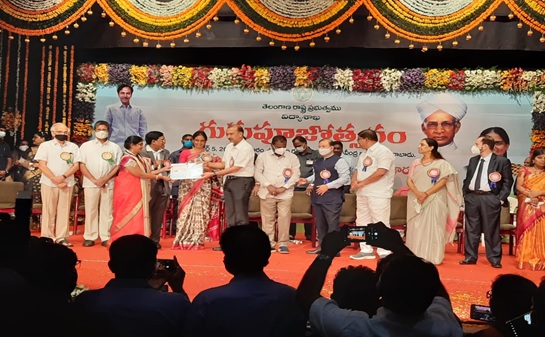
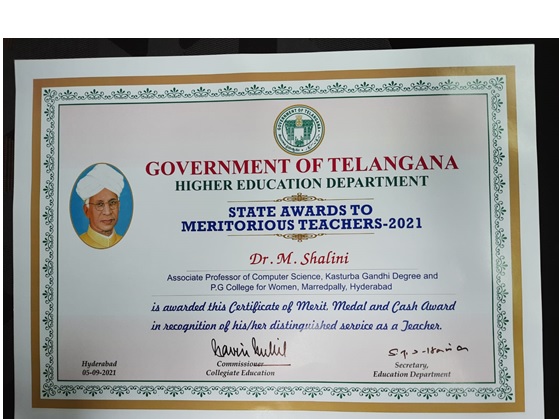

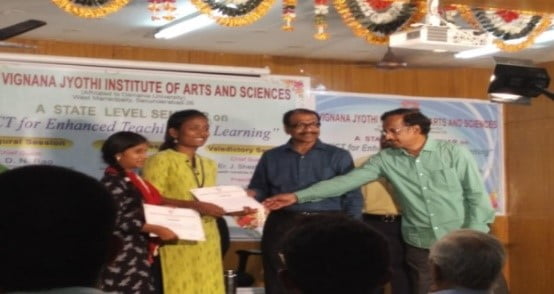
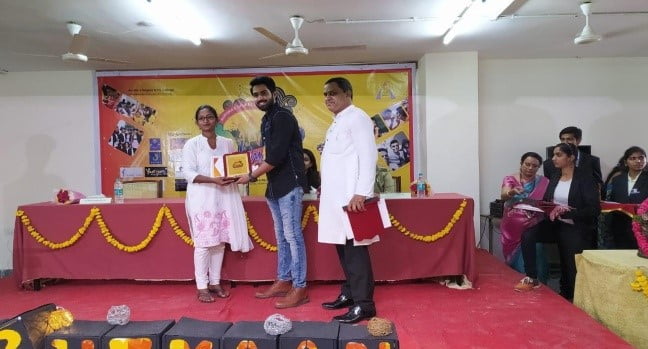
The Department organized Value-Added Course “Data Science (Artificial Intelligence) with Python” in collaboration with Result Based Learning. 86 students have successfully completed the course during January 2020 to May 2020

IT-Quiz Competition was conducted in Collaboration with “Result Based Learning”, 20th Feb 2020.
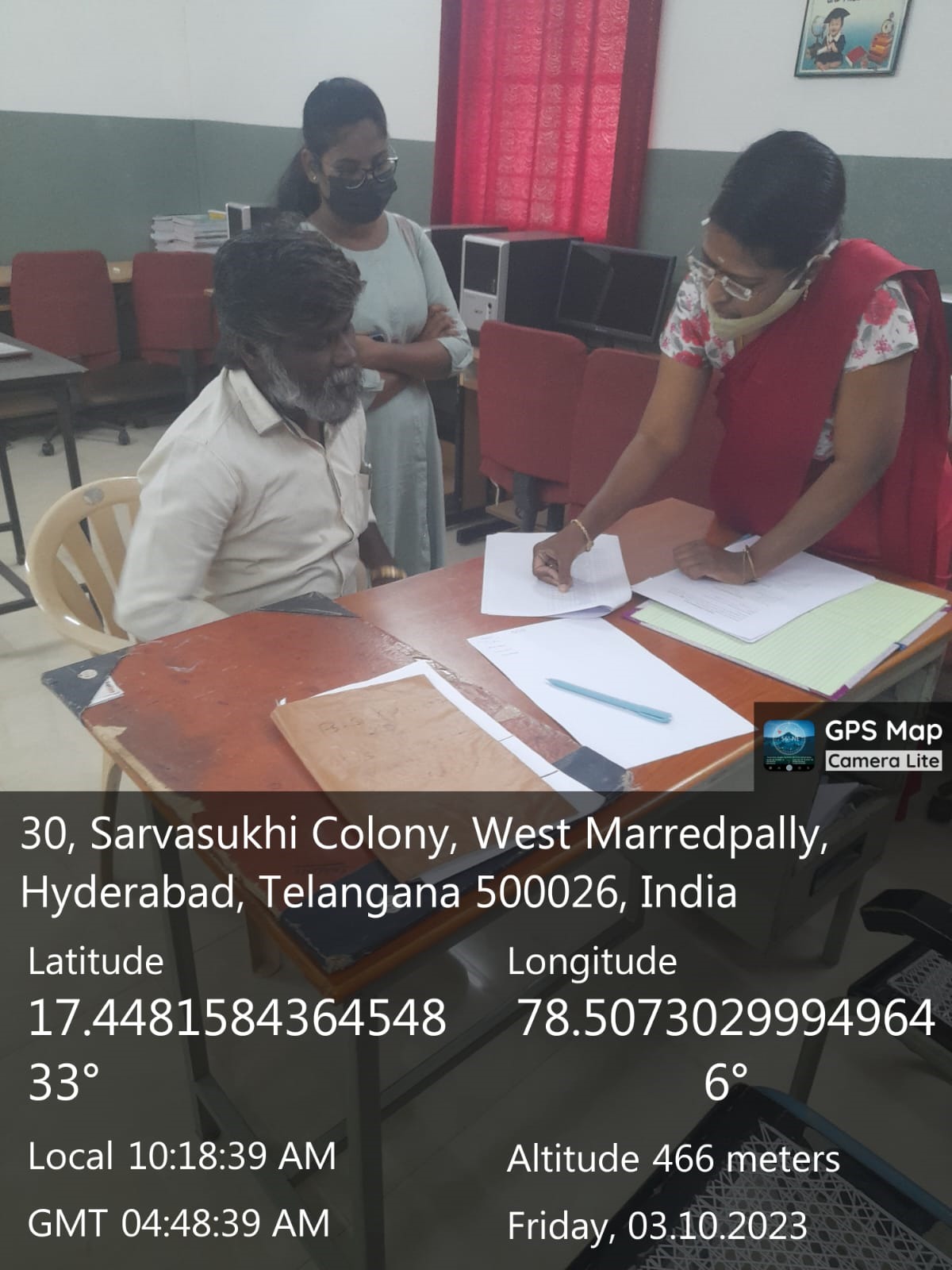
Students demonstrated on “Block Chain Technology & Cyber Security” during assembly proceedings on 28th Feb 2020.
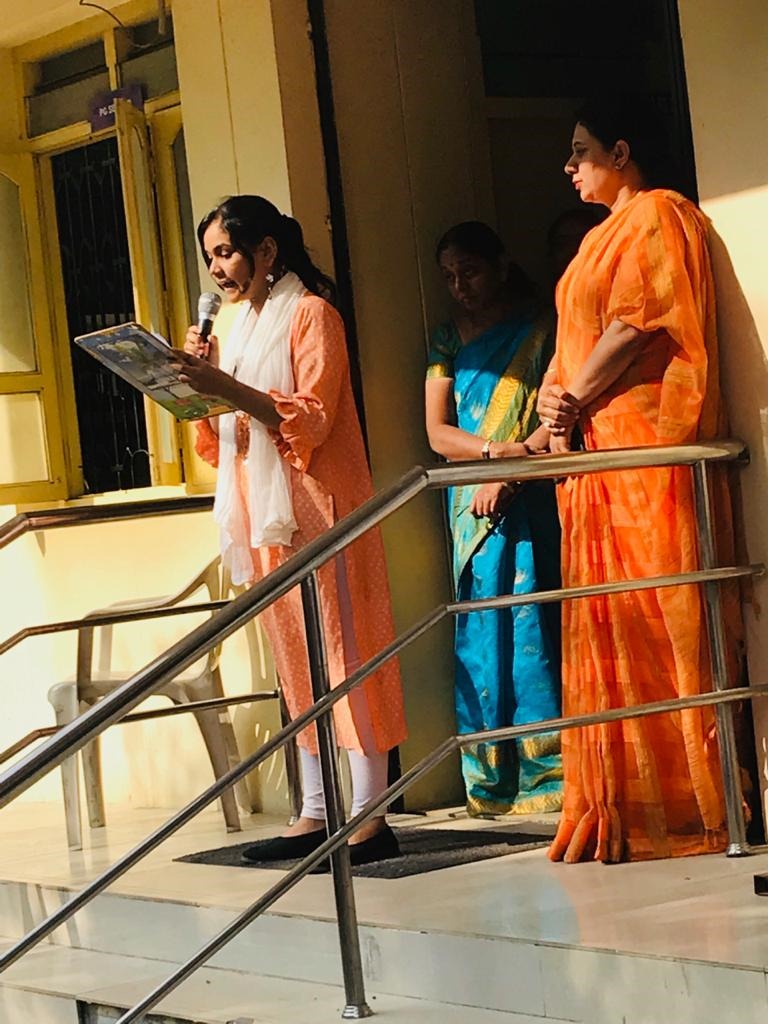

The department along with physics, electronics, maths and statistics departments organized a National webinar on “EMERGING TRENDS OF DATA SCIENCE AND ITS APPLICATIONS”, 2020.
AI-Transforming our future, National Webinar was conducted by the department. The department also conducted webinar on “UGC –Guidelines and its implications, 2020”.
The Department along with physical sciences departments organized a National webinar on “EMERGING TRENDS OF DATA SCIENCE AND ITS APPLICATIONS” https://www.youtube.com/watch?v=tfdp2IwIboU.
The department of computer science has created an IT club for it students in the year 2013. The club conducts competitions, events and other activities on the latest trends in the field of technology.
The students of the department with the guidance of the faculty presented a video on “Eminent Indian Female Technology Mavens”. The video showcased the contribution of women in technological nation building. This was done to commemorate International Women’s Day in March 2023.
The Tech Bytes – IT Exhibition was conducted along with SITEMAP in 2022, the computer science students had prepared models, charts and developed apps and showcased it to the faculty and students of other departments. The students arranged for food stalls and had an overall experience of conducting an event and developed leadership and teamwork skills.
Essay writing competition on “Importance of Ethical Hacking” was conducted as part of commemorating World Computer Literacy Day in December 2021.
IT-Quiz Competition was conducted by the department in collaboration with “Result Based Learning”, 20th Feb 2020.
Bug Fixing Competition was held in 2018 to enhance the programming skills of the student.
The club conducted an Exhibition on Hardware components of the computer, in 2017 were the students’ exhibited models regarding the hardware parts of the computer.



IT-Quiz Competition was conducted in Collaboration with “Result Based Learning”, 20th Feb 2020.
The Department has organized a Workshop on “Internet of Things” by Mr. T.Vinay Kumar Reddy, Head Trainer from “Smart Home India PVT LTD” for BSc & BCom III Year Students on 25th July 2019.
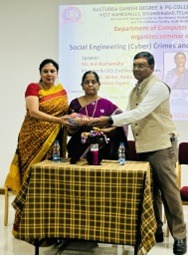

The Department organized Value-Added Course “Data Science (Artificial Intelligence) with Python” in collaboration with Result Based Learning. 86 students have successfully completed the course during January 2020 to May 2020.
The department of computer science, conducted 2D Flash Animation course for 1st Years(All Streams) with an objective to make the students have Hands-on experience to create 2D animations, graphical effects using the tools and techniques using the flash software.
The assembly session is conducted by the college every Monday, the department spoke on the topic of “Block Chain Technology & Cyber Security” 2020.


The department conducted inter department activity with department of commerce, a lecture on “Tax Planning and its benefits” in 2017. This program was conducted for physical science students, who have no commerce background.
The department along with PG department of computer science organized a lecture on “Digital Logics” 2017.


The main objective is to teach Computational thinking using Python.
The main objective of this course is to teach how to extract raw data, clean the data, perform transformations on data, load data and visualize the data.
The main objective of this course is to teach the principles and foundations of machine learning algorithms
The main objective of this course is to give a practical introduction to NLP. It deals with morphological processing, syntactic parsing, information extraction, probabilistic NLP and classification of text using Python’s NLTK Library.
The main objective of this course is to cover core concepts of NoSQL databases, along with an example database for each of the key-value, document, column family, and graph databases
The main objective of this course is to give a practical introduction to Deep Learning using Keras. It covers the concepts of deep learning and their implementation.